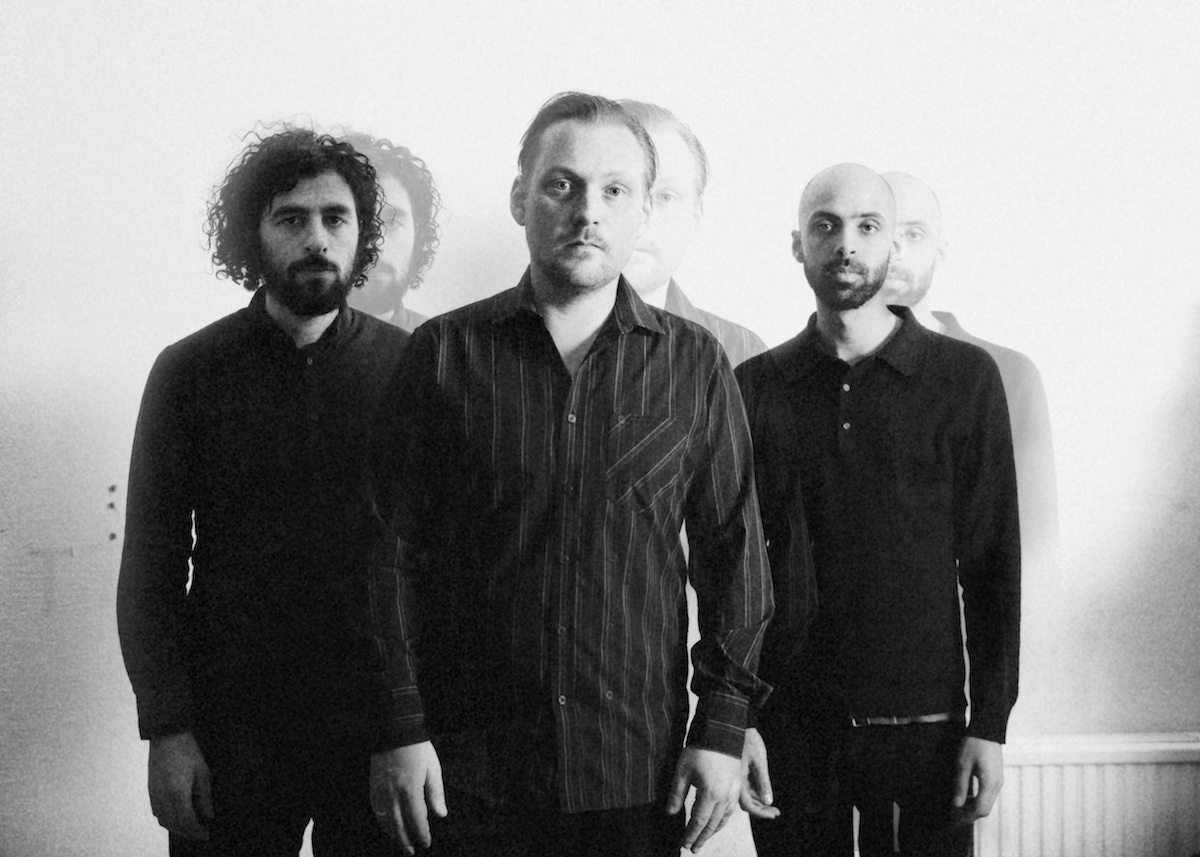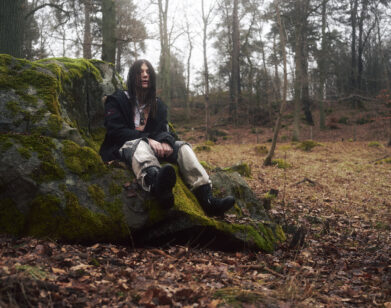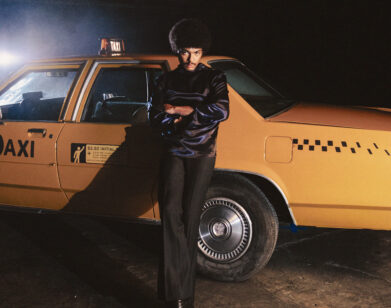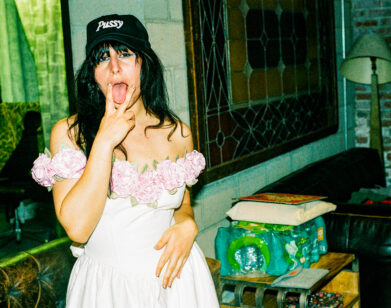Junip, at Fifteen and Two

ABOVE: JUNIP
José González, Tobias Winterkorn, and Elias Araya go back a long way. The trio formed Junip in 1998, uniting over a desire to explore a softer, more acoustic sound than their respective hardcore backgrounds had afforded them. But busy side careers and a zooming solo trajectory for González left the band little production time, leading to only two releases (a seven-inch in 2000 and an EP in 2006) prior to their full-length debut, Fields, in 2010. Fields ignited something; just two-and-change years on comes the release of Junip’s self-titled sophomore album. A reflective exploration of sound, Junip is bolder in musical and lyrical ventures than the trio’s previous work. It’s the music of a band comfortable in its own skin. On the eve of their tour, González and Winterkorn spoke to Interview about their journey and what finally got them all revved up.
TEMPE NAKISKA: So why did you jump straight back into another album, your second in so many years?
TOBIAS WINTERKORN: Yes, we haven’t released a lot of albums, but we have been around for quite some time! There was some discussion about whether José would be releasing more solo work or we would get to work on a second album, but it felt quite good for us when we were already warm to get back into it quickly.
JOSE GONZÁLEZ: We were getting to the end of the Fields tour and started talking about it, it felt fun and practical to go back to the studio and follow up quickly with another.
NAKISKA: Was that a big decision for you, José, to put your solo work on hold?
GONZÁLEZ: It was easy. I had thought about it when we were recording Fields and was open to the idea of sticking with this set-up for a while. For me, I love shows but I think for all of us we would like to tour less and spend more time writing music.
NAKISKA: Obviously you’ve all been together as band and before that, friends for a long time. How have the dynamics changed over the years?
GONZÁLEZ: Elias and I, for example, have known each other from the age of seven. We did everything together until we were about 20, from skateboarding to being in bands and just listening to music. But when we all got together to write Fields, even though we’d been together as a band for a decade or so, it was like we were getting to know each other again. Black Refuge [2006 EP] was similar too.
WINTERKORN: Now it’s like we’re grown-ups. We’re boring and old, maybe a bit wiser. Like a good wine!
NAKISKA: [laughs] Speaking of age, the album feels mature, as in the lyrics are quite reflective—would you agree?
GONZÁLEZ: Yes, it’s definitely reflective almost in an existential way. But also, tracks like “Your Call” are more open in a sense that a teenager could relate just as easily as somebody my age. It’s about a person sitting on the couch being told to stand up or enjoy the slacker life. I’m 34 now so I’ve been through a couple of cycles in my life and I’ve witnessed it happen to others, be it depression or big life experiences. It’s part of life.
NAKISKA: Was the writing process more difficult than with the last album?
GONZÁLEZ: It was actually easier with this album. With Fields, I struggled quite a lot, and much of the lyrics I’m not so comfortable with today. But with this album, it felt a lot easier. With music, you get used to writing and searching for chords that you like; and in the same way, I think I’ve found a method of finding metaphors and avoiding words that people don’t use or relate to. Small tricks.
NAKISKA: In tracks like “Baton,” there’s a lot of repetition. There’s a percussive feeling going through the whole album, really. Is that a specific reaction to your hardcore days?
WINTERKORN: I think everything we do is a reaction to our hardcore stuff, from the way I sing, to the acoustic guitar. That song was actually really fun because we tried out something new: we stripped down the drum kit and took it down to nothing, just guitar and a small speaker for the organ.
NAKISKA: Can you tell me a bit about your journey from your hardcore band days to the folk rock you create now, and of course your own music along the way, José?
GONZÁLEZ: For me it wasn’t changing gradually, it was more doing parallel stuff. So from the age of 14 doing acoustic guitar and bossa nova and later classical guitar and on the side doing bass in a hardcore band. Junip was started as a continuation of the acoustic songs that I had recorded on cassette. As you were saying, with the switch between my solo stuff and the folk rock, that’s somewhere in between. The Junip sound has definitely been changing since we started from a softer folk rock to a wide variety of sounds, from kraut folk to very ballad-style folk, to synthesizer…
NAKISKA: I feel like there’s definitely more of a depth of sound within this album, too.
WINTERKORN: We’re always experimenting with sounds but with this album I was less afraid to do more with them, definitely. For example, I wasn’t afraid to use cheesy stuff! It doesn’t have to pretentious or something people will think is “arty.”
NAKISKA: How would you say you’ve progressed as a band since Fields?
GONZÁLEZ: We’ve become better at recording ourselves; better sound engineers. Don [Alsterberg] taught us well. He helped us with setting up the drums and gave us a lot of recording hints. I hate the term, but once you find the “sweet spot” when recording, it makes a big difference.
NAKISKA: What are you looking forward to about touring?
GONZÁLEZ: We’re five on stage: bass, percussion, more keyboards. We often don’t have time to jam, but it’s nice to have the option and the opportunity to hang out and throw around ideas while we’re traveling.
JUNIP IS OUT TODAY, AND JUNIP PLAYS THE HIGHLINE BALLROOM ON JUNE 13. FOR MORE ON THE BAND, VISIT ITS WEBSITE.






